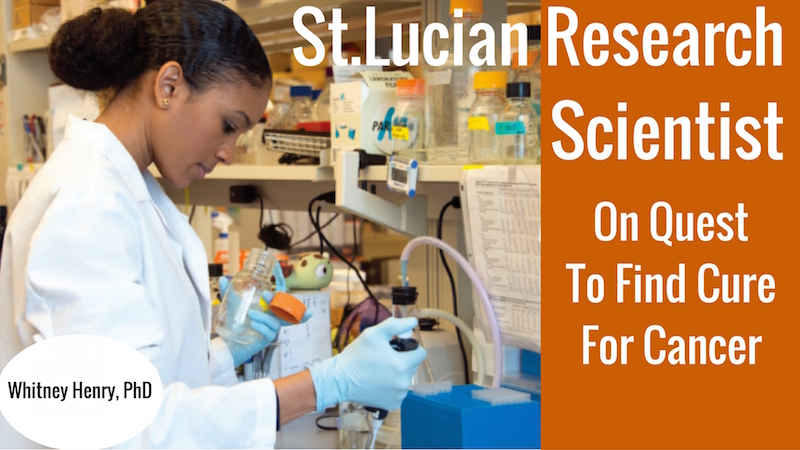
By: Monica Victor
Cancer! A six letter word wreaking havoc on the human race. St.Lucian Research Scientist Dr. Whitney Henry PH.D is on a mission to stop it in its tracks.
We all know someone who is affected by or whose life has been cut short by the pervasive and nondiscriminatory disease — CANCER. Perhaps we ourselves are in the fight of our lives, hoping, wishing, waiting and praying that a cure is found in our lifetime.
And so it isn’t surprising that the World Health Organization (WHO), says cancer is among the leading causes of death worldwide. In 2012, 8.2 million cancer-related deaths were recorded worldwide. That same year 14 million new cases were reported and is expected to rise to 22 million within the next two decades. These statistics are staggering.
A St.Lucian Research Scientist, Whitney Henry, has moved the needle closer to finding a cure. Her findings thus far are impressive and involves that little inexpensive pill many of us, our parents and fore-parents used for pain and inflammation and one that people use these days to prevent heart disease, heart attacks or stroke — ASPIRIN.
Whitney’s Journey in Becoming a Research Scientist
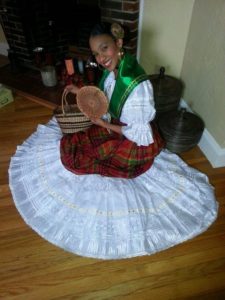 Hailing from the community of Vieux-Fort, Whitney’s academic journey began at the Vieux-Fort primary school. She then attended one of the top secondary schools on the island – St. Josephs Convent and then went on to Sir Arthur Lewis Community College.
Hailing from the community of Vieux-Fort, Whitney’s academic journey began at the Vieux-Fort primary school. She then attended one of the top secondary schools on the island – St. Josephs Convent and then went on to Sir Arthur Lewis Community College.
It was a pretty smooth trajectory up until …
“After A-level I thought I’d wait for a Cuban scholarship to study Dentistry but that year the government wasn’t sure if there would be any given for this area,” she recalls. “I was stuck and very frustrated. ‘What am I going to do?’ I looked into the University of the West Indies(UWI) but thought it was really expensive and that I couldn’t afford it. Although my family said, “Go for it; we will cross that bridge when we get there, I thought this was not an opvtion.”
Whitney waited on that Cuban scholarship. In the interim, she found herself substituting, teaching Math and Science at her alma mater, the St. Josephs Convent.
“It was a unique experience, I still felt like a student,” she says. “As students we were not allowed in the staff room and there I was sitting at my desk, with all my teachers whom I hold in high regard. Although it was initially awkward, teaching at SJC was a great learning experience.”
Her 3-month stint ended and Whitney found herself teaching again, this time full-time in a new setting.
“Then I got a job at the Micoud Secondary School. It was my first time being in a co-ed setting, and the exposure to this new environment and teaching dynamic was very enriching,” she says. “There I developed many good friendships with my colleagues and hopefully, made a positive impact on the lives of my students. But even while I was there, I felt like I needed to explore other options and continue pursuing my educational endeavors.”
Her sister passed on some information that would forever change her life course…
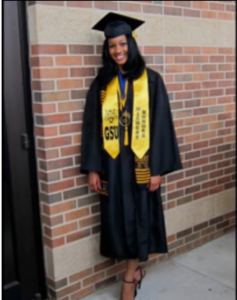 “One day my sister, Darra, said to me, ‘I came across this announcement online stating that someone will be coming to St Lucia to speak and offer scholarships to Grambling State University.'”
“One day my sister, Darra, said to me, ‘I came across this announcement online stating that someone will be coming to St Lucia to speak and offer scholarships to Grambling State University.'”
Leaving no stones unturned, Whitney attended the seminar. The next thing you know, she was on a flight from St. Lucia bound for Louisiana.
“I honestly didn’t know what I’d do with a bachelor’s degree in biology,” she says. “But, at 19 years old I decided to take the plunge and left the comfort of my home. I was worried and wondered whether my academic preparation from St. Lucia would be sufficient. I had never travelled to the United States, and didn’t know what to expect.. boy was I nervous.”
But as is characteristic of Whitney, she was ready and had no problem assimilating…
“Fortunately there was a cohort of St. Lucians who were also going to attend Grambling State University, so in the end I wasn’t really alone, they eventually became my family away from home,” she says. “Once I got to Grambling I naturally became part of the school community. I joined the science, cultural, scientific and religious organizations. I also found myself tutoring students in science and mathematics.”
Her summers, she spent in research labs across the country broadening her knowledge…
“Every summer I tried to get into a program where I could gain research experience,” she says. “That prove to be challenging because of my international student status as most undergraduate research programs were federally funded. Only a few places would accept international students and that made it very hard.”
Whitney got lucky. She recounts her first summer research experience…
“In my mind, it was intimidating to think that I would be pursuing my first summer research at Purdue University in Indiana, a huge and well established research institution. I was nervous and scared. I thought, ‘ will I be able to meet the expectations of this program? “
But Whitney would not allow her insecurities to undermine her performance. At that point it was sink or swim so Whitney devised a divide and conquer plan for success…
“I had to figure out an action plan that would allow me to be successful in this program,” she says. ” To do so, I needed to internalize my goals and create a strategic plan that would allow me to tackle each tasks. In the end it was a very rewarding experience. I left Purdue with high recommendations from peers, professors and strangers alike.”
Although Whitney had done remarkably well, she still wasn’t quit sure about her career path…
“For a long time I had been vacillating between pursuing a career in dentistry or biomedical research. A trip that summer to attend a pre-dental workshop dispelled all indecisive thoughts,” she recounts. “I recall trying my best to remain focused at the pre-dental workshop but most of the time I found myself scribbling plans for the next experiment.”
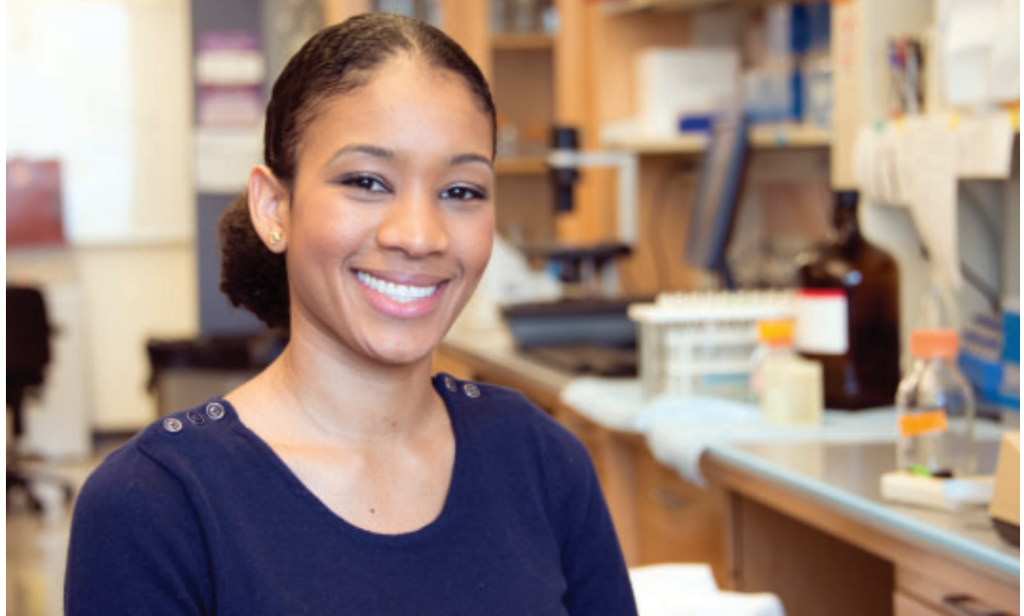 Her second summer research experience at the University of Texas, Southwestern Medical Center, in Dallas cemented her passion for research…
Her second summer research experience at the University of Texas, Southwestern Medical Center, in Dallas cemented her passion for research…
“While conducting my research, I encountered several problems, which I was given the latitude to troubleshoot on my own. I worked arduously for long hours on my project – being one of the first to arrive and among the last to leave,” she remembers. “I had finally found what I wanted to do.”
Fast forward to 2012, Whitney graduated Suma Cum Laude and Valedictorian from Grambling University with a bachelor’s degree in Biology. And, although she had prepared brilliantly for the next step in becoming a research scientist, a bout of self-doubt dogged her…
“The uncertainty of my future plagued me once again,” she discloses. “Though I had been fortunate to secure several research opportunities, and had a decent GPA, and strong recommendations, I still felt unprepared for graduate school.”
And the prospect of becoming a research scientist seemed out of reach for Whitney…
“As a young child growing up on a small island, the prospect of pursuing a doctoral degree, though a revered aspiration, seemed something remote and destined for only a few elite people,” she hypothesized. “The idea of becoming a research scientist whose daily conversations involved words like molecular cascades and genetic engineering was something restricted only to the movies and fiction novels. There I was seated across my professor’s desk, staring incredulously at my list of applications. ‘Why settle he says. You belong at these schools, yes, it will be challenging, but give yourself the opportunity”
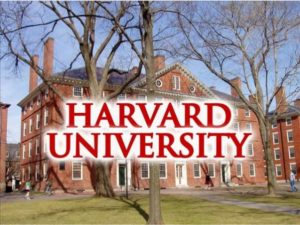 Whitney followed her professors advice, signed the acceptance letter and took her earned spot at Harvard — one of the most prestigious Ivy League Universities in the world. But, albeit very deserving, Whitney recounts the internal turmoil she suffered that very first year at Harvard…
Whitney followed her professors advice, signed the acceptance letter and took her earned spot at Harvard — one of the most prestigious Ivy League Universities in the world. But, albeit very deserving, Whitney recounts the internal turmoil she suffered that very first year at Harvard…
“The first few years of graduate school was one of the most challenging, yes- intellectually, but more so – psychologically,” she remembers. “I was surrounded by some of the best minds in the world, astute and intellectually groomed for the rigorous course work that lay ahead. Their confidence was palpable and only served to remind me of my own insecurity. Surely, Harvard must have made a mistake by accepting me.”
But they didn’t! And of course it wouldn’t be long until the very driven and determined Whitney shook up and shaped up. She immersed herself in the culture of the school, activated her determination and will to succeed, modeled the work ethic of her parents and went on to making her mark in the scientific community — a significant discovery in the area of cancer research.
Through her Research at the Toker Lab under the guidance of Alex Toker, professor of pathology at Harvard Medical School, Whitney found that long non-coding RNA (lincRNA) parts of a genome that do not produce proteins, actually contributes to the development of cancer — a prospect scientists had believed for a long time wasn’t the case.
But through Whitney’s findings, scientists are beginning to see the link between lincRNA and cellular processes.
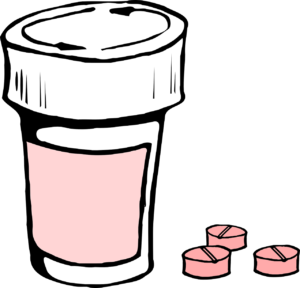 A finding very instrumental in finding a cure for the dreaded disease. Whitney built on another study that involved aspirin as a potential drug for the treatment of cancer…
A finding very instrumental in finding a cure for the dreaded disease. Whitney built on another study that involved aspirin as a potential drug for the treatment of cancer…
“A new study found that aspirin seem to benefit those colon cancer patients, with a certain mutation in a gene called PIK3CA,” she says. “They found that patients with this mutation who also took aspirin were less likely to suffer from cancer related death than those who did not. This finding is significant as it suggest that aspirin could potentially be useful in the treatment of cancer. What is even more exciting is the implication of this finding in the treatment of breast cancer — because these mutations are found in about 30 percent of breast cancers.”
But this theory alone is not enough. Whitney built on the idea. Here’s what she found…
“We observed that suboptimal doses of aspirin in combination with various PIK3CA inhibitors show enhanced suppression of breast cancer cell growth. We also observed that higher and more frequent doses of aspirin can delay tumor growth in a mouse model of breast cancer. Intrigued by these findings we then performed several experiments to try to understand how aspirin works in the context of mutant PIK3CA breast cancer.”
Their findings?
“So far we have learned that mutant PIK3CA can improve the activity of proteins involved in processes like cell growth, survival and metabolism that can affect processes like cell movement, inflammation and blood vessel development. All of these processes have played a critical role in the growth and spread of cancer.”
Most importantly…
“We have also learned that aspirin can block the activity of many of those mutant PIK3CA regulated proteins. This may explain in part why aspirin might have this beneficial effect,” Whitney discloses. “
In short, Whitney’s research found that aspirin, the simple inexpensive drug, the go-to drug of our parents and fore-parents may be significant in the treatment of cancers specifically colon and breast cancers.
Whitney emphasizes…
“This is only a tip of the iceberg. More research still needs to be done using animal models and human clinical trials.”
The St. Lucian research scientist recently began her postdoctoral fellowship at Whitehead Institute for Biomedical Research in Cambridge, Massachusetts where she will focus on metastasis– the spread of cancer from its origin to other organs.
“Metastasis accounts for most cancer-related deaths,” she says. “I believe that the training and skills acquired at Harvard will be instrumental in developing my expertise in this part of cancer biology.”
We thank Whitney for taking the time to share her exciting research with us. We’re incredibly proud of this Manmay LaKay and wish her all the success in the world.
So, who is Whitney Henry and how did she get here? Check back for Part 2 of my interview with the research scientist on a mission to leave her mark on the scientific community — her formative years, background, her struggles, triumphs and successes, her upbringing and life growing up in St. Lucia.
About the Author:
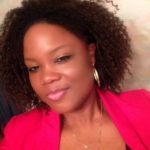 Monica Victor is the executive producer of Manmay LaKay Magazine. She’s a copywriter, social media and reputations manager at a financial services company. Her writings there aim to help folks make good use of their dollars and sense. Her writings at Manmay LaKay Magazine seek to celebrate her fellow St.Lucians, to empower and inspire folks to live their dream, raise awareness on the diseases that afflict us, connect all St.Lucians globally and to keep her St.Lucian heritage alive. Email:monae76@gmail.com
Monica Victor is the executive producer of Manmay LaKay Magazine. She’s a copywriter, social media and reputations manager at a financial services company. Her writings there aim to help folks make good use of their dollars and sense. Her writings at Manmay LaKay Magazine seek to celebrate her fellow St.Lucians, to empower and inspire folks to live their dream, raise awareness on the diseases that afflict us, connect all St.Lucians globally and to keep her St.Lucian heritage alive. Email:monae76@gmail.com

